#hamotzi
Text
Recently* I started saying hamotzei/benching every time I eat bread (look, it's the only prayer commanded in the torah. Kinda odd that it took me so long to add it in).
*Like, a year or two.
This had lead to a growth in halachic knowledge, as well as me deviating from some rulings in a fun way.
The biggest question is what differentiates bread from mezonot?
The answer is basically *vague shrug* in that it boils down to "Do you treat it like bread, or not?"
Cookies? Cake? Clearly never treated like bread.
Crackers? Not bread.
Pita chips? Uh... wait, I don't.... eh fuck it, I'll learn the answer on judgement day.
Chocolate Croissant? Not bread.
Croissant eaten with like... coffee? Probably not bread.
Croissant that you cut in half to make a sandwhich? Bread.. I guess?
Pizza? A legit debate. I rule that it is not bread.
Bagels? Bread.
Pizza Bagels? I rule that they are not bread, cause Pizza is not bread, and washing is annoying.
Matzah? Were it not for the fact that it is by definition bread, I would 100% not call it bread.
Also those burger buns where they use fruit juice so technically it is mezonot? go fuck yourself, it's bread.
7 notes
·
View notes
Text

Collage by hamotzi.
Source: x
2 notes
·
View notes
Text
Va'eira: "Who Brings You Forth"
HaMotzi — the Blessing for Bread
As a rule, most of the blessings recited over food speak of God as the Creator. For example, we say: בּוֹרֵא פְּרִי הָעֵץ (“Creator of fruits of the tree”), בּוֹרֵא פְּרִי הָאֲדָמָה (“Creator of fruits of the ground”), בּוֹרֵא פְּרִי הַגָּפֶן (“Creator of fruits of the vine”).
But the blessing for bread does not fit this pattern. Before eating bread, we say HaMotzi — הַמּוֹצִיא לֶחֶם מִן הָאָרֶץ — “Who brings forth bread from the earth.” Why don’t we acknowledge God as “the Creator of bread,” following the formulation of other blessings?
It is highly significant that the wording of the blessing of HaMotzi mirrors the language used by God in His announcement to Moses:
Is there some connection between bread and the Exodus from Egypt?
The Special Role of Bread
The Earth contains an abundance of nutrients and elements, and through various processes, both natural and man-made, these elements are transformed into sustenance suitable for human consumption. However, when it comes to foods that are not essential to human life, it is difficult to know whether the nutrients and elements have attained their ultimate purpose upon becoming food. In fact, their utility began while they were still in the ground, and we cannot confidently state that they are now, in the form of a fruit or vegetable, more vital to the world’s functioning.
Bread, on the other hand, is the staff of life. Bread is necessary for our physical and mental development. As the Talmud states, “A child does not know how to call ‘Father’ and ‘Mother’ until he tastes grain” (Berachot 40b). This emphasizes the importance of bread in sustaining life, setting it apart from other foods. The elements used to make bread have attained a significant role that they lacked when they were still buried inside the earth.
The words of HaMotzi blessing — “Who brings forth bread from the earth” — reflect this aspect of bread. The act of “bringing out” draws our attention to two stages: the elements’ preliminary state in the ground, and their final state as bread, suitable for sustaining humanity. Other blessings focus on the original creation of fruits and vegetables. HaMotzi, on the other hand, stresses the value these elements have acquired by leaving the earth and becoming life-sustaining bread.
What does this have to do with the Exodus from Egypt?
The elements that are used to make bread started as part of the overall environment — the Earth — and were then separated for their special function. So, too, the Jewish people started out as part of humanity. Their unique character and holiness were revealed when God took them out of Egypt. “I am the Eternal your God, Who brings you forth from under the subjugation of the Egyptians.”
Like the blessing over bread, God’s declaration highlights two contrasting qualities: the interconnectedness of the Jewish people to the rest of the world; and their separation from it, for the sake of their unique mission.
(Adapted from Olat Re’iyah vol. II, p. 286)
0 notes
Text
it’s interesting in bardugos evolution as a writer - this is a much simpler book in a way than soc, but it’s a piece of historical fiction to me that really scratches the soul and dives deep into Jewish history in the most yearning, painful ways
#Luzia remembering only the beginning of hamotzi! The feeling of being on the edge of destruction jsut a few generations on!#The line about how luzias hair was hair that had survived the destruction of the temple
13 notes
·
View notes
Text
I went with my girlfriend again to services yesterday! It was really nice, and at the point when the rabbi was asking about people's interpretations of the Torah portion, she gave what I thought was quite an interesting interpretation (usually no-one speaks at that point and it gets quite awkward so having someone speak was seen as quite welcome).
Also one of the other members came up to us and interrogated us slightly (apparently he does that a lot) because it was odd for him to see so many young people at the synagogue on a typical Shabbat morning. My girlfriend told him that she was "exploring her options" because she doesn't know yet if Judaism is right for her, but she enjoys being at the synagogue and participating in services, so she's trying to determine if it's the right path.
Anyway. On this Shabbat evening she wrote a poem about the Shabbat candles, she's been doing Shabbat and learning Hebrew with me for a few weeks, and she's also been very invested in discussion about helping me to keep a Jewish home when we live together. So even if she doesn't end up converting, she's definitely being very supportive and participative of my conversion and our future of keeping a Jewish home together.
#we have the chair club during kiddush/hamotzi#it's fun. we tell anyone who asks that we invented sitting#it includes#me who has bad joints‚ my girlfriend who has bad feet‚ M who is in a wheelchair‚ and S who has a few things going on#I went shopping with S and another friend after services and we found a nice box in a vintage shop that had a Star of David on#S bought it#and also told me about a jewellery shop that sold Star of David jewellery#jumblr#jewish conversion
5 notes
·
View notes
Text
every single week at temple after hamotzi i say, almost involuntarily, “i love bread.” my friends have been catching on to this for several weeks and now every time i say i love bread several people laugh but its okay because. there is bread
#txt#HAMOTZI LECHEM MIN HAARETZ WE GIVE THANKS TO GOD FOR BREAD OUR VOICES RISE IN SONG TOGETHER AS OUR JOYFUL PRAYER IS SAID#i love shabbos . i am so excited for shabbos
6 notes
·
View notes
Text
To the Reform Jewish community:
I think I have some misconceptions about the reform community. I think I'm wrong about how I perceive reform Jews and their level of observance, and I want to be educated.
The things I'm going to say are going to be pretty harsh, but I promise I say them so you can understand where I'm coming from, my experience with the Reform movement, and that I want to learn because I see some problems with my thinking. My background and experiences are primarily with the conservative movement, modern orthodox, and Chabad. It's no secret that within these communities, reform Jews get a pretty bad reputation (I want to stress: Not everyone in these movements says/believes these things, but it's common to hear) To the more right-wing side of Judaism, reform Jews are seen as assimilated Jews, "Jewish only in the name" I've heard. I'm told about how reform Jews widely don't keep kosher, often don't have mezuzot, don't pray, don't lay tefillin, don't keep shabbat except making a dinner every now and then. I'm told, and given the impression, that reform Jews have a loose relationship with their Judaism and misunderstand our core texts which leads to misunderstandings and demonization of Jews who do (ie "Orthodox Women are oppressed").
I don't have very much experience with Reform Judaism (which is likely where my ignorance comes from), and I understand that there are Reform Jews who may keep kosher, or may keep Shabbat, but I think my misunderstanding of what makes someone reform is their level of observance. To me, if I encountered a Jew who grew up Orthodox but now no longer kept kosher, kept shabbat, threw out the tzitzit and doesn't lay teffilin, I'd say he's no longer orthodox and he's reform.
Is this where my misunderstanding is coming from? Is it the shul you go to? I just can't imagine seeing a man with tzitzit in a Reform shul. Are you taught that there are observances you no longer need to keep?
I have a pretty decent-sized Reform following, so I've heard from you about how it's offensive and painful when people assume a lack of observance, and that that's not what it means to be reform. I want to be educated, and I want to listen. At the same time, I can't ignore the instances I was in a reform-dominated space and they told me themselves "Oh yeah reform Jews don't keep kosher, it's not important," or about how they work on Shabbat, and then I notice they don't know Hamotzi or the Birkat.
I see the divide between movements and it feels like we can't reach across the aisle to understand each other. Ring-wing Jews are mad at left-wing Jews for not maintaining important traditions, but mainly they are mad at reform rabbis because they see the loss of tradition as the fault of the community leader, that the community would choose to uphold more traditions if they were educated on it, which is the responsibility of the rabbi. Reform jews are mad at right-wing Jews because, let's be honest, right-wing Jews are constantly talking trash and have a belief that they are "better" Jews for being more observant. But I think reform Jews don't really understand some practices, or they aren't taught about them right, because a large portion of dialogue I've had with reform Jews has been me having to field accusations and speak for the movement about how right-wing Jews aren't all sexist, homophobic, transphobic, etc. and neither are the practices. So I think this also plays a large part in why Reform Jews have a problem with Jews from other movements, because they believe we're closed-minded.
I think these hard conversations need to be had so that we can come away understanding each other. I want Judaism to move past the need for movements, which I think we are, because part of me believes they do more harm than good and people never feel like they quite "fit" certain movements. I just hope that these conversations can be had in good faith.
#jumblr#frumblr#judaism#jewblr#reform judaism#reform jews#j tag#jew tag#jewish discourse#jewish culture#goyim dont touch
551 notes
·
View notes
Text
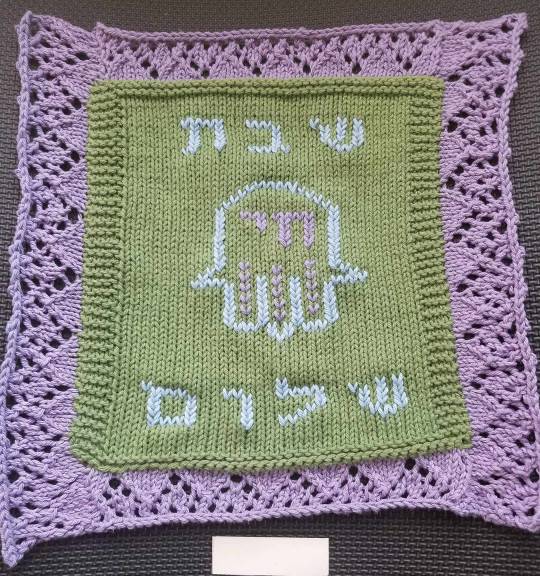
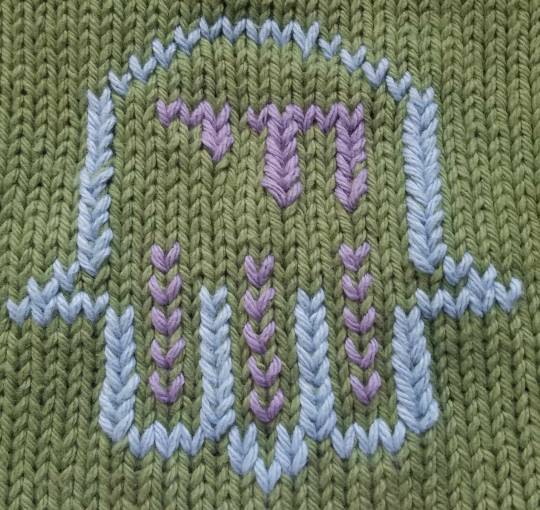

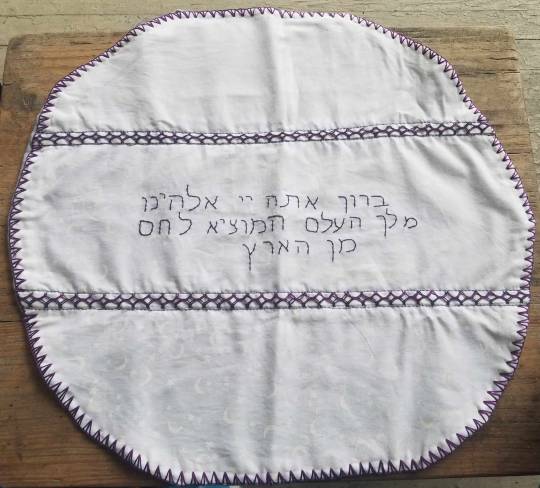
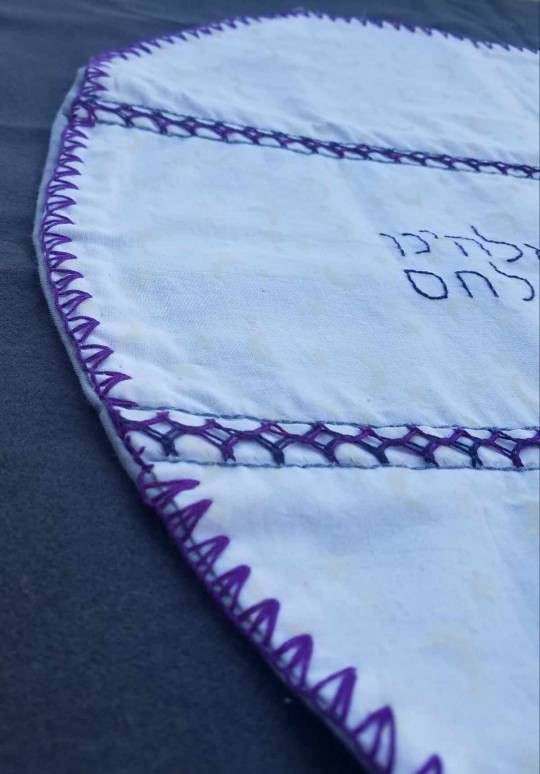
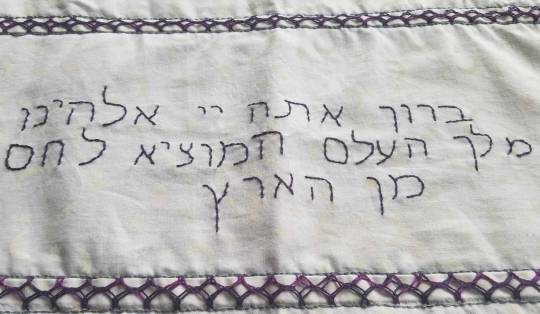
The challah covers are for sale in my ko-fi shop for $45 a piece, plus shipping and handling! Both are entirely my own designs, and entirely hand made. The first is knitted and reads "Shabbat Shalom," and the second is embroidered and has the hamotzi blessing. All text is in Hebrew. More detailed descriptions are available in the shop listings.
60 notes
·
View notes
Text
If you have a tie, please pick one of them for the poll, rather than “other.” And you can elaborate in a reply or tag.
#jumblr#brachot#jewish polls#I think shehakol and mezonot tie for me because of being satisfying to say#and shehecheyanu is close behind#I’ll have to pick ONE when this actually posts womp womp
21 notes
·
View notes
Text
Reading advice for writers on how and how not to write Jewish characters, and looking back on my '90s childhood, I think there were at least two shows that had pretty good representation.
First of all, Rugrats.
Yes, Tommy Pickles' family is interfaith, and they celebrate Christmas and Easter. But it never comes across as just an excuse to make Tommy "goyische in all but name." His Jewish grandparents are prominent, funny, likable supporting characters. The original show had a Passover special and a Hanukkah special, and more recently, the CGI reboot had a Purim special. Nor, if I remember correctly, does the family practice any Christianity apart from the holidays. Instead of being Christians with just a few token Jewish trappings, this interfaith family is basically Jewish except that they celebrate Christmas and Easter in secular ways. And apparently (though I've only read about it), the sequel series All Grown Up has the 11-year-old Tommy explicitly identify as Jewish, not half-Jewish... as he should, since his mother is the Jewish parent.
Also, coming from an interfaith family myself, I loved the fact that Tommy was "like me." And I love the mere fact that, even within an interfaith context, the show has the protagonist himself be Jewish rather than a supporting character. Especially because the supporting cast includes Chuckie Finster, a red-haired, glasses-wearing, nebbishy, neurotic boy – yet he's not Jewish, while protagonist Tommy, who has none of those traits, is.
Then there was The Puzzle Place, a PBS puppet show that revolved around six friends of different ethnicities, which included a Jewish girl, Jody. I think it did pretty well where she was concerned.
The show's holiday special pointedly averted the "Jewish character celebrates Christmas with their friends because it's fun" trope. Besides teaching her friends about Hanukkah, Jody also made it clear that she didn't celebrate Christmas and didn't want to, and she resisted her Norwegian-American friend Ben's attempts to "help her" join in the Christmas festivities. Another episode, revolving around different kinds of bread in different cultures, took place at Passover and had Jody unable to eat the fry bread that Apache boy Skye brought for everyone to try. A lesser show might have had her break down and have some in the end, but she didn't, she just agreed to try some the next time he brought it. She also explained Passover to the other kids, gave them all matzo to taste, and even sang the hamotzi before they ate it. In another episode, where the theme was "growing up," she told her friends about b'nai mitzvah, and in another, which was about dealing with death, her dad talked about sitting shiva. Yet her Jewishness didn't define her either; other episodes where she was the protagonist dealt with universal issues, like facing a bully or coming to terms with her parents' divorce.
These are things you don't see in every kids' show.
#judaism#jewish#children's shows#television#'90s nostalgia#rugrats#the puzzle place#nickelodeon#pbs#cartoon#puppet show#representation
47 notes
·
View notes
Note
Jewish culture is pausing whatever you’re watching to google the bracha for whatever you’re eating. Turns out some veggie burgers get hamotzi even if they don’t have the bun!
.
20 notes
·
View notes
Text

Customized Midori Codex notebook by hamotzi.
Source: x
1 note
·
View note
Text
A Christian friend once asked me what my temple had to say about Jesus.
“Nothing?” I was confused. “Why would we talk about Jesus?”
“Because he’s Jesus.” Her confusion was as apparent as mine. “Shouldn’t you talk about the son of God?”
“We … don’t believe that.” I didn’t want to offend her, but I wanted to be clear. “We talk about our own religion in our own religious spaces.”
Recent news about how antisemitism can be baked into aspects of Christianity and the Muslim religions has me thinking about that conversation. It makes sense, of course, that these religions that came after Judaism would reference their religious forebear, though I remain frustrated that people believe the context of another religion would give them understanding of a religion that is rejected by the religion proving the “context.”
And, as it turns out, years later, during the height of the seeming ubiquity of WWJD bracelets (for those outside the US or too young to remember, “WWJD” stands for “What Would Jesus Do?” and people wore WWJD bracelets to remind them to keep Jesus’ values in their minds and hearts, and this spawned increasingly specific questions as to how Jesus would approach various aspects of modern-day life), my rabbi did mention Jesus at temple.
“People ask ‘What Would Jesus Do?’ ‘What Would Jesus Drive?’ ‘What Would Jesus Eat?’ Well, we know the answer to that last one.” The rabbi smiled. “Kosher food!”
He then led us in the HaMotzi.
23 notes
·
View notes
Note
I know practice is a big part of art improvement but are there any artists, cartoons/animes, or anything that you use as inspiration towards your own art style? And any advice on clothing designs? :o
sure! its not that i actively use those but they influenced my style a whole lot and my preference in design and anatomy and vibe and such. plus id's say my style has been pretty consistent lately, so these things are what made the base of it? if it makes sense
for shows/cartoons/animes:
Balto, loved this movie as a kid and that style and shape language i think affected me a lot. the old disney 101 Dalmatians i think is in that same area
actually? a lot of older cartoons. Bambi, Atlantis: The Lost Empire, Spirit: Stallion of the Cimarron, Mulan, Lilo and Stitch (creature design brooo)
One Piece. period. was a HUGE inspiration, i loved the style and the designs for characters so much i started studying clothing and outfit design in school.
Wakfu (the cartoon), plagues my vision now and then. big inspo for the design work and character movement and effects
My Hero Academia. i mean? yeah. big inspo for costume design and certain anatomy things and details
Steven Universe. shapes, costumes, colors, backgrounds, all of it
every single Ghibli movie. all of them. the bug one, the fish one, the pig one, the plane one, the wizard one, the spirit one, the small one, the forest one, and the others that i wanted to watch but didn't
and for the artists... ooh boy, all of them? can i just say i love all the artists ever? no? okay....
(all on tumblr)
hoofpeet (specifically their 1coweveryday blog)
snippit-crickit
beidak-art
tsaikonautz
woonyoung
hamotzi
calmao666
notmusa
sarakipin
and many many more that i just can't find right now
also im sorry im gonna need you to send me another ask about clothing so i can talk more about it in a separate post
56 notes
·
View notes
Text
the thing about the familiar that’s so fascinating so painful so aching is that it is in every way a post apocalyptic novel. It’s not about what the Jews suffered in 1492, it’s about the great grandchild of those who converted to save their lives, the ones in the last grasps of being able to hold on to their tradition, who they are as jews, those who know what hamotzi is but can no longer say the words. There’s a ticking time bomb on the story - luzia, whose great grandfather saw the Talmud burned, will need to hide who she is entirely if she wants to marry or have children; in so many practical ways, she is the last Jew standing
#The familiar#I’m like 1/2 way in#It’s so rich and beautiful and painful. The generations AfTrr the destruction
120 notes
·
View notes
Text
“We’re having breakfast,” Kitty says. She carries an enormous platter of jelly-smeared, powdered sugar frosted matzo brei to the table. “There’s enough for you, too, Professor.”
She returns to the sink to wash her hands and make hamotzi.
And after a long minute, so does Erik.
---
Or, Erik doesn't leave the Mansion first thing, that morning.
I can reveal the fic that I wrote for @vtsuion for the Jews In Space Fic Exchange! I've never written Cherik before, so I hope that it turned out okay. It was fun to try out a new pairing in a new corner of the Marvel universe!
26 notes
·
View notes